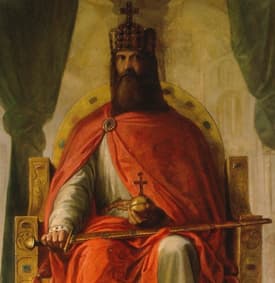
Authority and Power
"The eclipse of the idea of authority is an essential characteristic of today’s world; in fact, it is the most immediately observable characteristic” (Del Noce). Yet freedom has not become more luminous in the absence of authority. On the contrary, it has been eclipsed together with authority by ever-more absolute forms of arbitrary power: totalitarianisms which aim precisely at authority. Authority is in the service of freedom; for it is the power to make things grow in accord with the given order to which the authority is first subject. It is best represented by a father who bears witness to that order, received from above, as he hands himself over to the mother and together with her brings a child into being.


